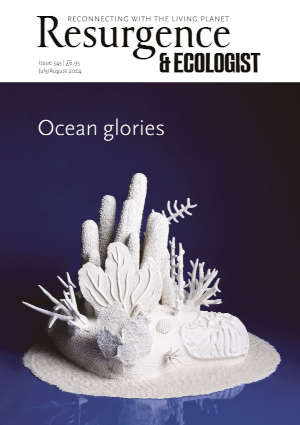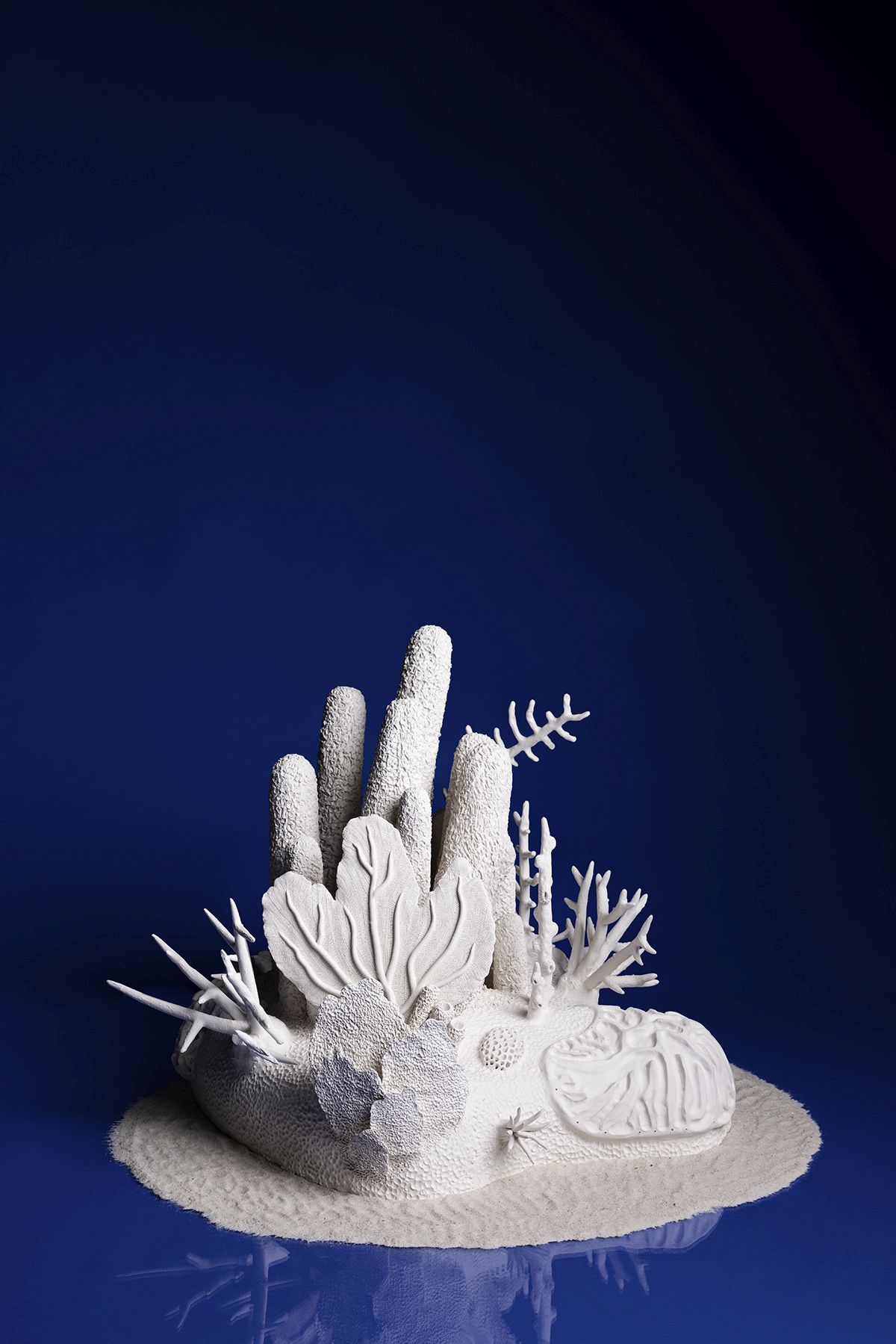The Resurgence Trust, as many of you will know, is based in a tiny and remote coastal village on the dramatic and beautiful Hartland peninsula, which forms part of the wilder and least built-upon section of the North Devon coastline.
As it happens, I grew up a few miles away from Hartland, but what that meant for most families at that time was that our long summer holiday would be spent at the beach and in the sea.
I don’t live close to the sea any more, but I think about it a lot and increasingly with overwhelming sadness, not least because, having buffered us from maybe the worst aspects of climate change for decades, it is as if the ocean can take no more.
As I sat down to write this Welcome, I saw a headline appear in my newsfeed telling me the ocean has just endured a year of record-breaking temperatures – and then the online activist group Avaaz sent out a call to action headlined ‘Ocean Graveyard’.
I could cry.
When the editorial team sat down to talk about a special Ocean theme for this summer issue, we decided not to bombard you with the dismal facts and figures that tell such a depressing story. Instead, we chose to celebrate why we all love anything to do with the ocean and marine life by exploring just a few of what we are calling ‘Ocean Glories’.
From the excerpt from ethologist Jonathan Balcombe’s wonderful book What a Fish Knows to ocean writer and regular contributor Melissa Hobson talking to marine scientists and discovering just a fraction of what we still don’t know about the ocean, this is a theme designed to get us all geared up for action, and the Making Waves feature on page 30 has some suggestions for where to start.
The fact is, we could have filled page after page after page and issue after issue with spectacular ocean-related artwork and story after story about charities and organisations and people who have not been looking the other way, trying to do something – anything – to halt the destruction of our ocean.
So many doing so much, and yet it is still not enough.
It feels as if we are in the last chance saloon, and still most people are not listening.
What will it take?
In March 1968, the Senegalese forestry engineer and environmentalist Baba Dioum, who was Senegal’s Director General of Water and Forestry at that time, shared the following wisdom in a paper presented at the triennial meeting of the General Assembly of the International Union for the Conservation of Nature (IUCN) in New Delhi:
“In the end, we will conserve only what we love, [and] we will love only what we understand.”
In the summer of that same year, I would for sure have been swimming or bodyboarding in the rolling waves of the Atlantic with my brothers, side-stepping an enormous and venomous dead Portuguese man o’ war that had washed up on the sandy beach overnight, or counting blood-red anemones in the rock pools.
If we don’t understand anything else, we surely by now understand that our ocean is dying, as are the creatures that live in the sea, that they need our help, and that the time to step up and act is now.








